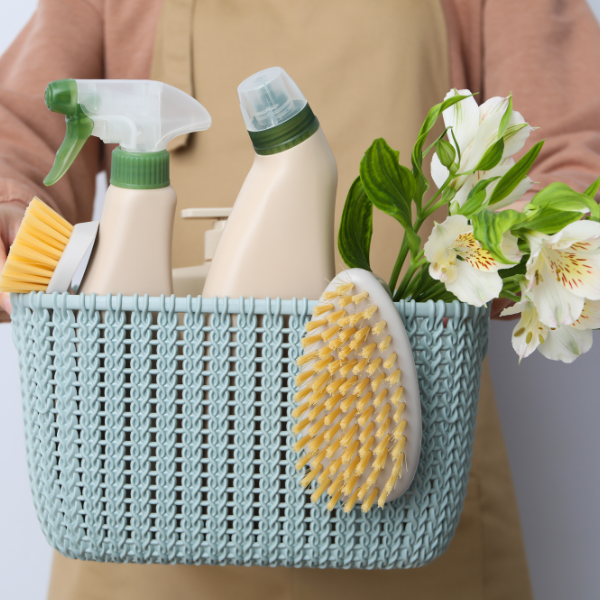Herbs for Immunity: Elderberry
/I often have felt as though I’m doing All.The.Things (deep nourishment, stress management, good sleep, and consistent movement), and then BOOM! Someone in my close bubble starts complaining of a sore throat, body aches, or a low-grade fever, and I can’t help but have that sinking feeling (you know the one) and think, “UH OH, $#@”.
I immediately go into crisis-management mode. I grab a thermometer. Do a quick self-evaluation and then proceed with the rest of the home’s human roster. How is everyone else feeling? I visit my kitchen pantry and check to see if a trip to the grocery/health food store is needed. How’s the inventory on soup ingredients, herbal tea stock, vitamin supplements, etc.? Does this sound familiar? What if, instead of waiting for that “UH, OH” moment, we took conscious action? What if we incorporated small steps to promote wellness and minimize our susceptibility to illness in our day-to-day lives?
We are exposed to germs regularly as we move through our daily lives. This has been a consistent subject of interest for me, especially during the last few years. In the past, I undervalued herbs in many cases. I did not understand their medicinal qualities. Over time, I have learned through direct experience how herbs may support the body’s innate healing mechanisms. For example, elderberries and garlic have been shown to help to prevent flu viruses from invading the body and replicating themselves. There are many herbs that can help build your immune resilience, and it’s much easier than you may think to incorporate into your day-to-day routine.
As each of us continues our individual health journeys, it’s important to embrace all resources available to us to support our health. We can find support in our communities or a mental-health professional to support our emotional health. We can reach out to local natural healers and service providers for ways to support our physical health. Acupuncturists offer personalized Chinese herbal medicine for different health conditions and virus resistance. Ayurvedic counselors may suggest specific herbs or give dietary and lifestyle guidance to guide you towards balance and wellness. Massage and bodywork, infrared saunas, Red-Light Therapy, and Salt Therapy all have a myriad of health benefits which include immune system support. Empower yourself by learning what you can do to support your own well-being and be proactive.
Using well-researched and trusted herbal remedies is something we can do to support our health. One of the most well-studied and trusted natural immune boosters is Sambucus Nigra, commonly known as elderberry. Elderberry fruit and flowers are packed with antioxidants and vitamins, particularly vitamin C, which are powerful allies to our immune systems. Its documented use goes back as far as 400 BCE, with Hippocrates calling the elder tree his “medicine chest” because of its many benefits. Elderberries have been used as folk remedies for centuries in North America, Europe, Western Asia, and North Africa, and there are generations of anecdotal evidence of its effectiveness in fighting infections, clearing up complexions, and boosting immunity. This wide range of benefits is most likely due to the elderberry’s ability to support and enhance the individual’s immune system.
Following is a quick, easy recipe I’ve used to help my family boost our immunity. You can make this at home whenever you suspect a cold or flu may be present. Take one to three tablespoons, three to five times per day.
As with any herb, certain precautions should be taken. Most species of Sambucus berries are edible when picked ripe and then cooked. Both the skin and pulp can be eaten. However, it is important to note that uncooked berries and other parts of plants from this genus are toxic. WebMD suggests cautious use of elderberry for those with autoimmune diseases because of its ability to stimulate the immune system. It also notes that the use of elderberry may interfere with medications that decrease the immune system.
The information provided is not intended to be a substitute for medical treatment. Please consult your medical-care provider before using herbal medicine, particularly if you have a known medical condition or if you are pregnant or nursing.
Elderberry Syrup Recipe
Ingredients
3 cups fresh elderberries
6 cups water
1 cinnamon stick or 1 teaspoon powdered cinnamon
1 teaspoon powdered ginger
1 teaspoon fennel seed
1 teaspoon dried chamomile flower
2 cups honey, plus more as needed
1. In a medium pot over high heat, combine the berries, water, and herbs. Bring to a boil. Reduce the heat, and simmer uncovered for 1 to 2 hours or until reduced by half.
2. Use a spoon to mash the berries in the pot. Stir, simmer for 15 minutes more, and strain through a wire-mesh sleeve or cheesecloth. Squeeze the leftover berries well to get out every bit of fluid. You should have between 2 and 3 cups of elderberry decoction.
3. Return the elderberry decoction to the pan, and place it over low heat. Add an equal amount of honey, warming it gently as you stir so it mixes thoroughly with the elderberry decoction.
4. Bottle and label the syrup. It will keep in the refrigerator for several months.


































